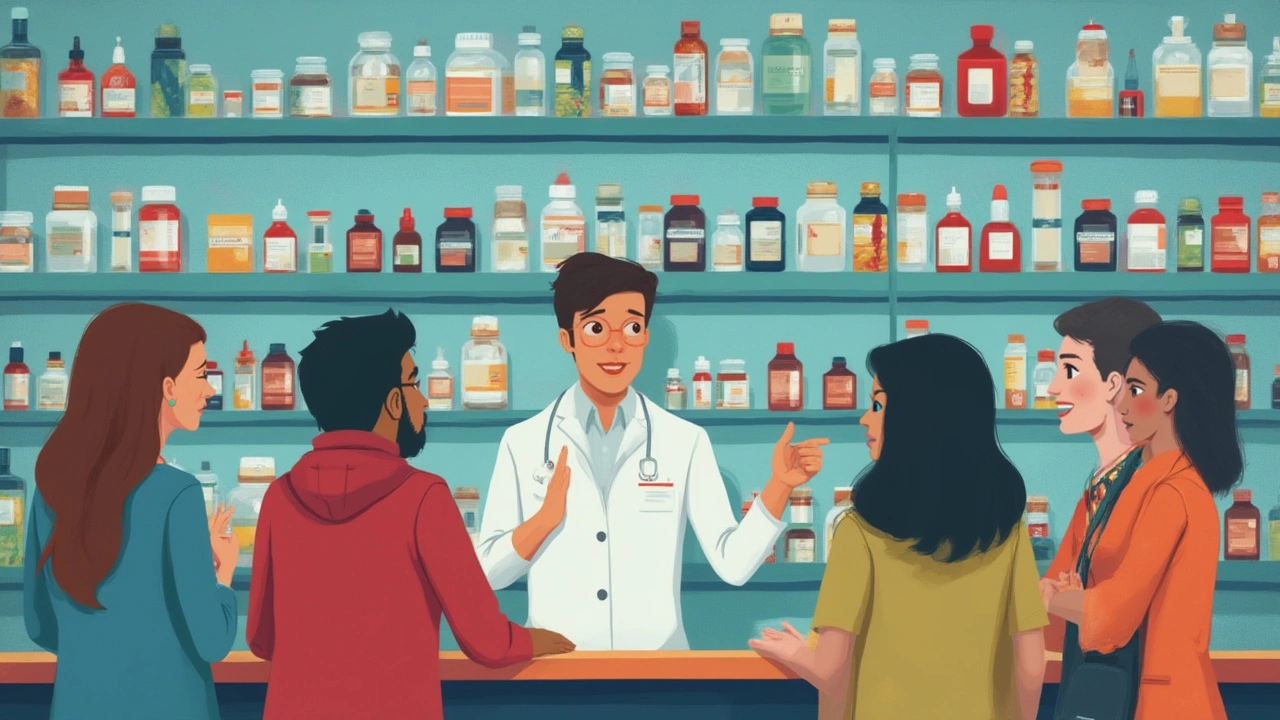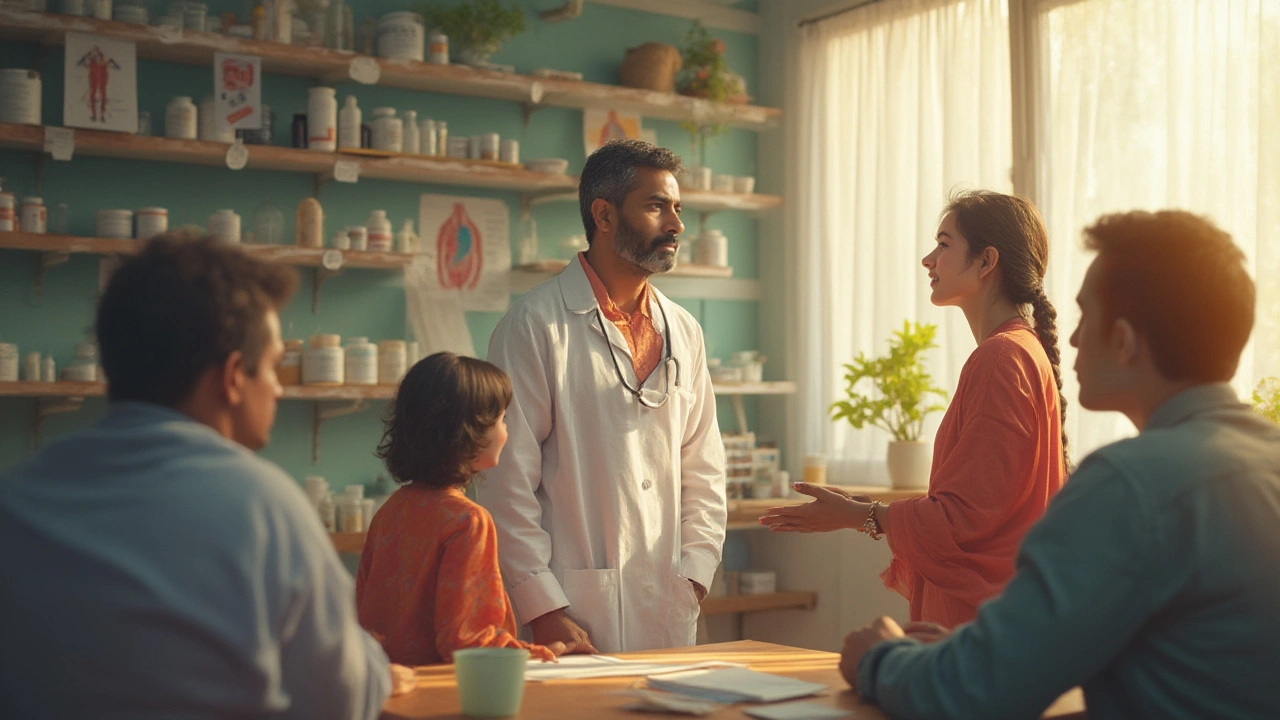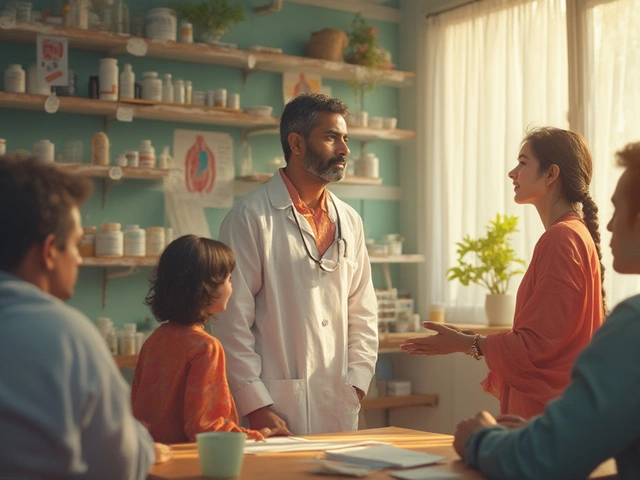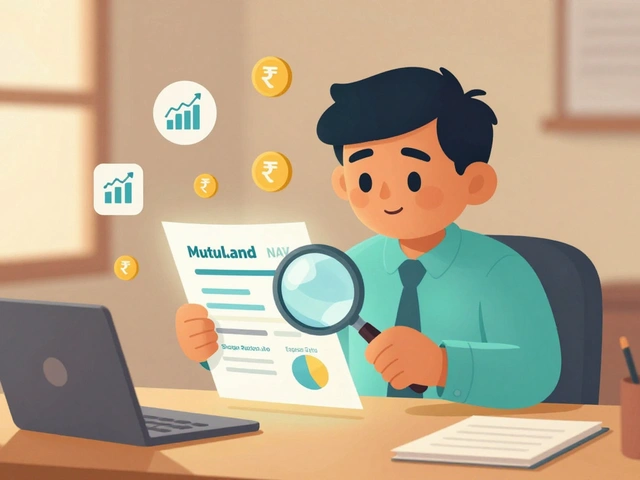Pharmaceuticals vs Myths: What Really Works for Health and Wellness
Picture this: a friend swears ginger tea cures everything, your aunt posts miracle superfood stories on Facebook daily, and then there’s your doctor, eyeing a stack of clinical studies. Who do you trust? Myths around medicine spread fast—even faster than some viruses—while the science of pharmaceuticals sticks quietly to the facts. It’s funny (and a little scary) how easily urban legends cling to our daily routines, steering choices from what pills we pop to how we fend off sniffles. Forget hearsay for a minute—let’s crack open the truth on what actually works, what needs more proof, and which age-old myths won’t die quietly.
How Modern Medicine Became a Magnet for Myths
Ever heard someone say antibiotics kill viruses? Or that vaccines overload your immune system? Pharmacies are stuffed with remedies backed by decades of clinical research, but a wild amount of misinformation still sticks around. Part of this comes from how new drugs hit the market. Every new pill or shot needs to clear a mountain of trials—think thousands of volunteers, piles of paperwork, years of monitoring—before doctors ever write prescriptions. But as soon as a breakthrough happens, the race to interpret (and sometimes misinterpret!) the science begins.
Take penicillin, the first true antibiotic: it went public in the 1940s, saving thousands from infections that used to mean certain death. Yet within months, wartime rumors claimed it could treat everything from toothaches to jealous lovers’ heartbreak—and people even tried sneaking into hospitals to steal it. Fast-forward to today and you’ll still hear wild ideas. A 2023 Ipsos poll found three out of ten people in India believed antibiotics cured colds, even though viruses laugh off those meds.
Social media throws fuel on this fire. One viral tweet or WhatsApp forward can convince thousands that turmeric alone beats back cancer, or that you never need sunscreen if you eat enough carrots. When trust in “big pharma” wobbles, some folks reach for ancient home remedies or trendy detox plans. The reasons run deep: a mix of disappointed expectations, sky-high medicine prices, and too many headlines about drug recalls make folks crave simpler answers. But that search often leads straight into a tangle of myths, many as old as aspirin itself.
Don’t get me wrong—natural remedies and cultural traditions have value. Science often starts with what people already use. But there’s a huge gap between “may help” and “definitely works.” Medicine’s job is to fill that gap with solid evidence, not just hopeful stories.
Which Myths Still Lure Us In?
If you ask five people about aspirin, paracetamol, or the latest weight loss pill, chances are you’ll get five wildly different answers—half rooted in research, half in urban legends. Let’s spotlight some common myths and see how they stand up in the real world.
- Myth: “Antibiotics Cure Everything.” Truth: They target bacteria, not viruses. Heading for antibiotics when you have a cold or flu just invites trouble—like the rise of tough, drug-resistant bacteria. In 2024, WHO tracked 5 million deaths worldwide related to antimicrobial resistance, mostly due to unnecessary antibiotic use.
- Myth: “Painkillers Are Addictive for Everyone.” Truth: Medications like paracetamol or ibuprofen show almost zero addiction potential. Opioid painkillers are different—but you only risk addiction with prolonged or unsupervised use.
- Myth: “If One Pill Helps, Two Are Even Better.” Truth: Doubling up does not double benefits and can land you in the emergency room. Take paracetamol: just a few extra grams can trigger full-blown liver damage.
- Myth: “Natural Means Safe.” Truth: Not always. St. John’s Wort, a herbal anti-depressant, interacts dangerously with dozens of drugs, even making birth control less effective. Deadly nightshade is natural too; doesn’t make it safe.
- Myth: “Vaccines Weaken Your Immunity.” Truth: The exact opposite. Vaccines train your system to fight invaders without the risk of the actual disease. If vaccines weakened us, kids today wouldn’t have record-low rates of measles or polio.
What’s wild is that these ideas don’t just stick—they multiply. A WHO review in 2023 showed one misinformation post about vaccines could be seen by fifty million people in a single week. And that shapes real-world choices. During the COVID-19 pandemic, some communities saw vaccination rates drop by 30% after fake news spread. The gap between what science knows and what gets believed is wider than ever in the smartphone era.

What Actually Works? The Science Behind Effective Pharmaceuticals
Forget miracle cures for a second. The big wins in modern medicine come from boring, steady research. Prescription drugs pass three stages of clinical trials before they’re approved—and that’s only after years of lab testing. The world’s best-selling drugs, from statins to blood pressure tablets, show up in study after study with real benefits, measured over decades.
Check out the heavy hitters, with global data (2024) to prove their worth:
| Drug/Type | Main Use | Key Outcome |
|---|---|---|
| Statins | Cholesterol, Heart Disease | Reduce heart attack risk by 27% (Lancet, 2022) |
| Insulin | Type 1 Diabetes | Lowers complications; triples lifespan of patients vs pre-insulin era |
| SSRIs | Depression | 60% show symptom relief after 6 weeks (Cambridge study, 2021) |
| HPV Vaccine | Prevent HPV-related cancers | 90% drop in cervical cancer in vaccinated women (NEJM, 2023) |
| Antibiotics | Bacterial Infections | Cure rate for strep throat over 95% |
Extra bonus: many drugs bring unexpected side-effects that are actually good. Take low-dose aspirin—originally for pain, now proven to cut heart attack risk. There’s also “off-label” prescribing, where drugs approved for one condition end up helping another. Some migraine treatments are now used for cluster headaches and neuropathy, because sharp doctors noticed patients reporting benefits.
Still, science doesn’t always mean simple answers. For every blockbuster drug, there are flops and disappointments. Statins aren’t magic for everyone; a few folks get muscle pain or have genetic resistance. Antidepressants don’t fix every kind of depression. But—this really matters—they beat every folk remedy tested under serious conditions. When a drug fails a trial, you hear about it. When turmeric fails, nobody posts the results on Instagram. That’s the difference solid evidence makes.
Tips for Smarter, Safer Choices—Without Falling for Myths
So, with all this noise, how do you pick what actually helps? Here’s what I learnt from doctors, pharmacists, and years spent fact-checking wild claims:
- Chase the evidence, not the hype. If a medicine sounds too good to be true, check reliable sources before trying it. Peer-reviewed journals and your local healthcare provider are your friends.
- Trust—but question—labels like “natural” or “herbal.” Sure, some work well (like peppermint for nausea), but others offer wishful thinking or real risks. If you take prescription meds, ask about interactions—even onion juice isn’t always harmless!
- Match the medicine to the ailment. Cough? Most cough syrups offer little benefit and risk drowsiness. A fever from flu rarely needs antibiotics. Use what actually treats the cause, not just the symptom.
- Dose matters. Stick to what’s prescribed. This goes double for things like paracetamol, iron supplements, or blood thinners—you don’t want to find out what an overdose feels like.
- Ask about side effects. Doctors and pharmacists expect you to ask questions—don’t worry about sounding silly. If your medicine is giving you problems, say so. There are often other options.
- Before buying over-the-counter drugs, check reputable health organization websites—most have clear guides on what works for common problems.
- If you want to add herbal remedies, let your doctor know. They can spot potential problems fast—like turmeric lowering blood sugar too much in diabetics already on meds.
Pro tip: India’s Health Ministry lists every drug’s safety record and approved uses online (check https://cdsco.gov.in). Bookmark it if you’re often in doubt. And yes, pharmacists really do know their stuff—ask them before splurging on mystery syrups with 20 herbal extracts on the bottle!

What the Future Holds: Can Myths Keep Up With Medical Science?
Even in a world with smartwatches and telemedicine, myths still outpace the science. Every year, tens of billions of dollars pour into research, with 60 new drugs approved in 2024 alone by the US FDA. With AI sniffing out side effects faster, and genetic tests personalizing treatment steps, reliable medicine only gets sharper. But humanity’s urge for the fast fix, or the secret ancient cure, won’t vanish soon.
Why do myths stick? Sometimes it feels good to believe an easy idea, especially when medicine feels scary or big pharma seems cold. But your health deserves hard truth, not fairy tales. Drug breakthroughs often start with listening to people’s stories—then putting claims to the test, again and again. The best doctors listen and explain, not just prescribe and dash off.
If you’re still curious—or a little worried about your own medicine shelf—ask more questions. Demand proof, not promises. And when a friend tells you swallowing garlic cloves is as good as your doctor’s advice, smile, nod, and check the science anyway. Your health, your call. Don’t let myths decide for you.





